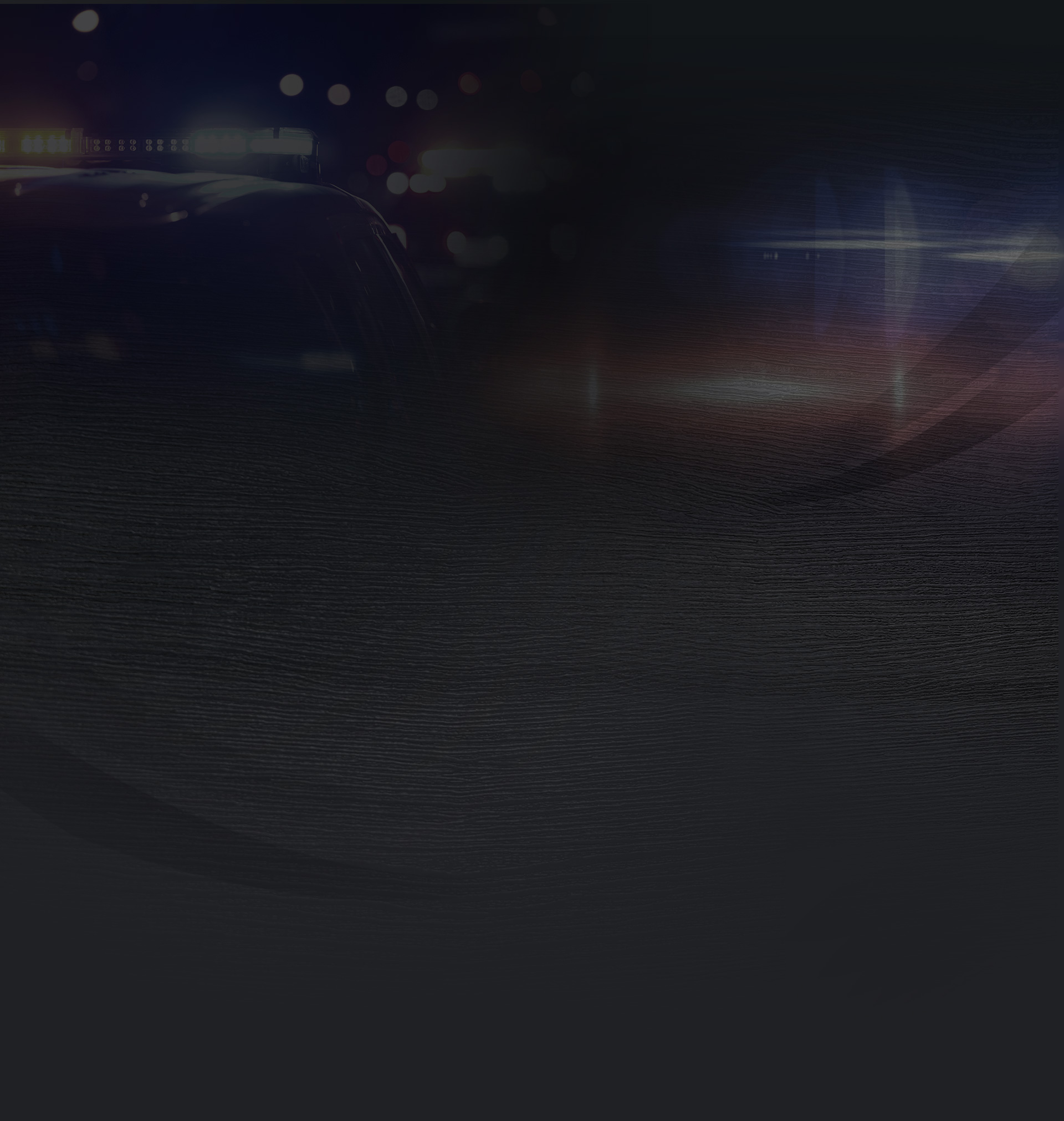
Field Sobriety Tests in Oklahoma DUI Cases
DUI Defense Attorneys Prepared to Challenge Field Sobriety Test Results in Oklahoma
Field sobriety tests, or “FSTs,” are a battery of tests designed to assist law enforcement in determining whether an individual may be impaired by alcohol. FSTs were designed by Dr. Marceline Burns, who field tested them in Colorado, California, New Mexico, and Florida. The FSTs were lab tested in 1977, 1988, and 2003.
Though there are numerous types of FSTs, only three are recognized by the National Highway Traffic Safety Administration (NHTSA): the horizontal gaze nystagmus test (commonly referred to as the “pen test”), the walk-and-turn test, and the one-leg stand test.
You do not have to participate in field sobriety tests, even if a police officer believes you are driving while under the influence! If you did submit to a field sobriety test and were subsequently arrested for DUI in Oklahoma, reach out to our team at Hunsucker Legal Group immediately. These tests are frequently inaccurate and can often be refuted. Our experienced lawyers receive the same training as police officers in field sobriety testing and are able to skillfully cross-examine officers on these methods. Our goal is to know more about DUI enforcement, evidence, and law than any person in the courtroom, which allows us to provide you with the quality criminal defense representation you deserve.
Our attorneys have what it takes to effectively contest the results of field sobriety tests in Oklahoma DUI cases. We are available 24/7, so schedule a free case evaluation by calling (405) 544-2992 or contacting us online today.
The Horizontal Gaze Nystagmus Test
The horizontal gaze nystagmus test is designed to look for any involuntary jerking of the eye. When alcohol works on your nervous system, it will affect your vision, which will result in a bouncing or jerking motion in your eyes when you look in a certain direction. During the horizontal gaze nystagmus test, you will be asked to focus your eyes and then move them at a certain speed and distance to help the officer determine if there is alcohol in your system.
These test results can be inaccurate due to several factors unrelated to alcohol impairment. Certain medical conditions, such as inner ear disorders or neurological issues, can naturally cause nystagmus – a condition where the eyes make fast and involuntary movements – and lead to misleading results. Environmental factors, such as poor lighting or distractions during the test, may also affect the officer’s ability to accurately observe and interpret eye movements. Additionally, improper administration of the test or lack of proper training can result in errors that compromise the reliability of the findings.
The Walk-and-Turn Test
The walk-and-turn is a divided attention test. You will be asked to walk in a straight line, heel-to-toe, taking nine steps, turning, and returning nine steps with your hands at your side. The officer will be looking to see if you step off the line, raise your arms more than six inches above your body, are able to count, and can successfully make the turn. You can even be scored down if your start too soon.
Physical conditions like injuries to the legs, feet, or back may impede an individual's ability to perform the test successfully, regardless of sobriety. Uneven or slippery surfaces can further complicate the execution of the test. Stress, fatigue, or nervousness during the encounter can also affect balance and coordination, leading to results that might falsely suggest impairment. Highlighting these issues is crucial in disputing the accuracy of the test’s findings.
The One-Legged Stand Test
The one-leg stand test is also a divided attention test. You must raise your foot up and keep your hands at your side while counting out loud until you reach 30 (or the officer asks you to stop). The officer will time this test and be looking for you to put your foot down, hop, or sway.
Individuals with medical conditions like inner ear disorders or issues affecting balance may struggle with this test regardless of sobriety. Uneven ground or poor lighting can also make it difficult to perform the test as instructed. Even psychological factors, such as anxiety or nervousness in a high-pressure situation, may further impact an individual’s balance and concentration. These variables provide valid grounds for questioning the accuracy of the test results.
Are Field Sobriety Tests Accurate?
It is difficult for anyone to determine the accuracy of field sobriety tests. NHTSA claims that these tests are 80% accurate based on their assessment that the horizontal gaze nystagmus test is considered accurate 77% of the time, the walk-and-turn is considered accurate 68% of the time, and the one-leg-stand is considered accurate 65% of the time. These figures are all based on a .10% and above blood alcohol content (BAC).
NHTSA has released a list of external factors that can negatively affect the results of a field sobriety test, including:
- Being nervous, sick, or tired
- Footwear
- Wind, rain, and other adverse weather conditions
- Inner-ear disorders
- Age
- Weight
- Bright lights coming from the headlights of other cars, traffic lights, or police strobe lights
- General lack of coordination
The bottom line: Field sobriety tests often fail to provide reliable indications of impairment due to their inherent subjectivity and sensitivity to external factors. Our team at Hunsucker Legal Group can analyze every aspect of the test administration, including environmental conditions, health factors, and officer instructions, to identify inconsistencies or errors. By challenging the validity of the results of field sobriety tests in Oklahoma DUI cases and presenting alternative explanations, we can emphasize flaws in the prosecution’s case and effectively defend our clients.
You Are Not Required to Take a Field Sobriety Test
You should keep in mind that you are not legally required to take any field sobriety test, even when pulled over. When officers ask people to participate in these tests, they tend to phrase the request in a way that makes it seem like it’s a requirement. For example, they might say something like, “Would you be able to take these tests, and if you pass them, I’ll let you go?”
Field sobriety tests are called “pre-arrest screening,” and they are intended to help police gather evidence. So, by doing the test, you would be actually presenting evidence against yourself, which you’re not required to do by law.
If an officer asks you to submit to a field sobriety test, the best response is, “Am I required to take this test?” The correct answer is “no.” However, if the police officer still tries to persuade you to take the test, calmly state that you would like to speak to an attorney before deciding.
Cross-Examining in the Courtroom: We Can Take Down Field Sobriety Test Results
Many lawyers claim to be DUI attorneys but have not taken the step to really be qualified as DUI attorneys. One of these steps is getting certified in the Standardized Field Sobriety Tests. How can you cross-examine an officer or know if he completed the tests correctly if you haven’t been trained yourself?
Click here to read a transcript of Mr. Hunsucker cross examining a police officer in a case in which our client was found “not guilty” in 48 minutes. The transcript is posted with our client’s permission. You will see that Mr. Hunsucker gets the officer to admit that he deviated from the standardized methods of doing the test and by doing so, he compromised the validity of the tests. We put our training, knowledge, and courtroom skills to work when fighting to refute the unreliable results of field sobriety tests in Oklahoma DUI cases.
Failing a sobriety test doesn’t mean you’re guilty of DUI! Don’t wait to call (405) 544-2992 or contact us online to schedule your free, no-obligation consultation.

-
 DUI
DUI
PROCESS -
 SAVE YOUR LICENSE
SAVE YOUR LICENSE -
 DUI
DUI
FAQ'S
-
 ELITE DUI DEFENSE BACKED BY A POWERFUL TEAM John Hunsucker, Regent with the National College for DUI Defense, where he sits on the Board of Directors
ELITE DUI DEFENSE BACKED BY A POWERFUL TEAM John Hunsucker, Regent with the National College for DUI Defense, where he sits on the Board of DirectorsJohn is a nationally recognized DUI defense attorney and one of only 50 lawyers nationwide to earn Board Certification* in DUI Defense from the National College for DUI Defense. A former prosecutor, he uses his insider knowledge to build strategic, effective defenses. John and the team at Hunsucker Legal provide strategic, results-focused DUI defense throughout Oklahoma and beyond.
*The NCDD is the only organization accredited by the American Bar Association (ABA) to provide certification in the specialty field of DUI Defense Law.
-
 FIGHT FOR YOUR LICENSE Brian Morton, Former Assistant General Counsel for the Oklahoma Department of Public SafetyFocused solely on Driver’s License Defense, he fights tirelessly for the rights of our clients, using his unique perspective and expertise to secure the best possible outcomes. His in-depth knowledge of DUI law, including implied consent and prosecutorial tactics, makes him an invaluable asset to your case.
FIGHT FOR YOUR LICENSE Brian Morton, Former Assistant General Counsel for the Oklahoma Department of Public SafetyFocused solely on Driver’s License Defense, he fights tirelessly for the rights of our clients, using his unique perspective and expertise to secure the best possible outcomes. His in-depth knowledge of DUI law, including implied consent and prosecutorial tactics, makes him an invaluable asset to your case. -
 Client Reviews The staff are incredibly helpful and very friendly.
Client Reviews The staff are incredibly helpful and very friendly.The Hunsucker Legal Group is a good choice for anyone that is needing assistance with their case. They have fantastic communication skills and handled any questions or concerns with care and respect.
- Sergio F.
-
 Client Review Getting a DUI was extremely stressful, but Hunsucker took the stress out and handled everything.
Client Review Getting a DUI was extremely stressful, but Hunsucker took the stress out and handled everything.These people are amazing. They communicate with you and keep you informed on the entire process. I can't recommend them enough. True professionals, if you find yourself in my situation, Hunsucker is definitely the way to go. Brian and Doug explained everything up front and helped me through the entire process.




















.2502260919291.png)


